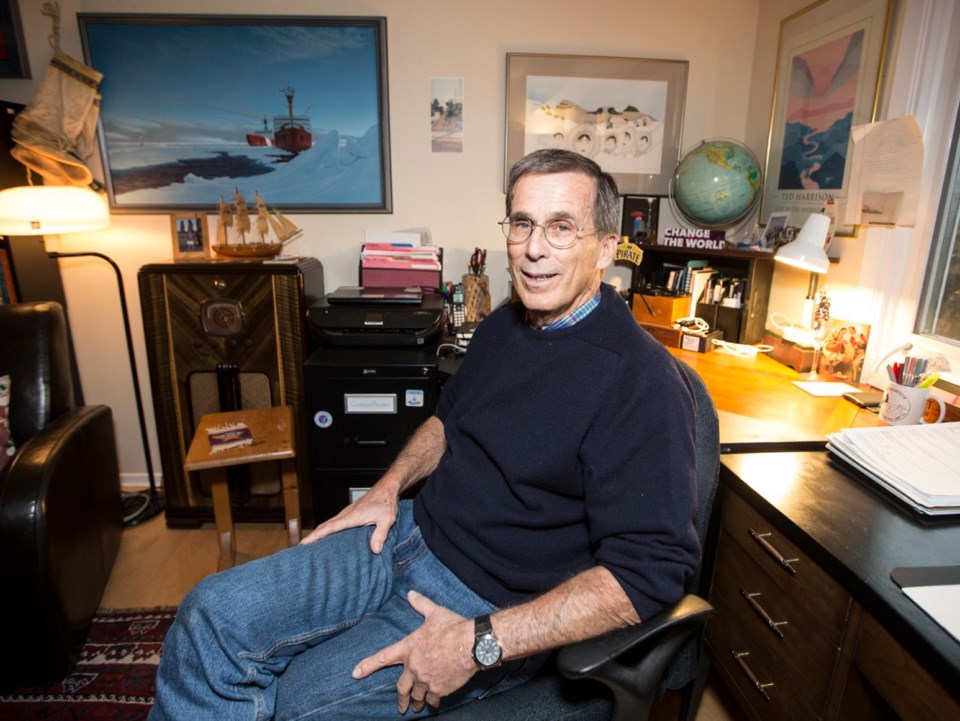Half a century has passed since oceanographer Eddy Carmack first visited the Arctic. Today, at 77, he remains hooked on unlocking the mysteries of the Far North as the world watches and worries about its accelerated response to climate change.
Carmack was announced on Friday as one of 120 honourees of the Order of Canada.
He said he was “stunned” and honoured when he learned that he would become an officer of the Order of Canada. A senior research scientist emeritus with Fisheries and Oceans Canada, the Saanichton resident retired in 2011, but continues to travel regularly to the Arctic to study waters in the central part of the Northwest Passage and the east arm of Great Slave Lake.
Interest in and support for scientific research in the Arctic has spiked in the past decade, he said. “There are so many people working now and new puzzles popping up one after another. Every time you think you learn one thing, it opens the door to ask another dozen questions. That’s what’s kind of exciting about Arctic research right now,” said Carmack, who works with Canadian and international scientists and has taken part in more than 90 field studies.
“I can’t just say ‘I quit,’ ” he said. “As long as I’m able, I would like to continue field work. … To be there and see it — maybe it’s like an artist having a model.”
Carmack was awarded the 2007 Massey Medal, administered by the Royal Canadian Geographical Society, for outstanding achievement in Canadian geography. He also received the inaugural Mohn Prize for Outstanding Research Related to the Arctic in 2018 and was the 2010 Tully medalist for the Canadian Meteorological and Oceanographic Society.
His work focuses on the impact of climate variability in lakes and oceans on the food web and fish and marine mammals, the Fisheries Department said.
Carmack used to visit the Arctic on icebreakers, but today relies on a smaller boat, capable of reaching bays and basins inaccessible to larger vessels.
Other local residents named as officers are Thomas E.H. Lee of Victoria and Ottawa, for his contributions as a public servant and in conservation of Canada’s natural resources.
Another Fisheries Department scientist, Robie W. Macdonald of Victoria, is being recognized for identifying the effects of contaminants on northern marine ecosystems and on nearby Indigenous communities.
Macdonald directs interdisciplinary programs studying the environmental pathways of contaminants, including their delivery, transport and elimination from aquatic systems, the Fisheries department said.
Lorna Wanosts’a7 Williams of Victoria is being honoured for her contributions to Indigenous education and her advocacy of Indigenous language revitalization programs. In 2018, the UVic professor emerita of Indigenous education received the Indspire Award for Education.
Acclaimed photographer Paul Nicklen, from Vancouver Island and Kimmirut, Nunavut, has been named as a member of the Order of Canada.
Nicklen’s work is often seen in National Geographic and he is a founder of SeaLegacy, a non-profit organization aimed at ocean conservation.



